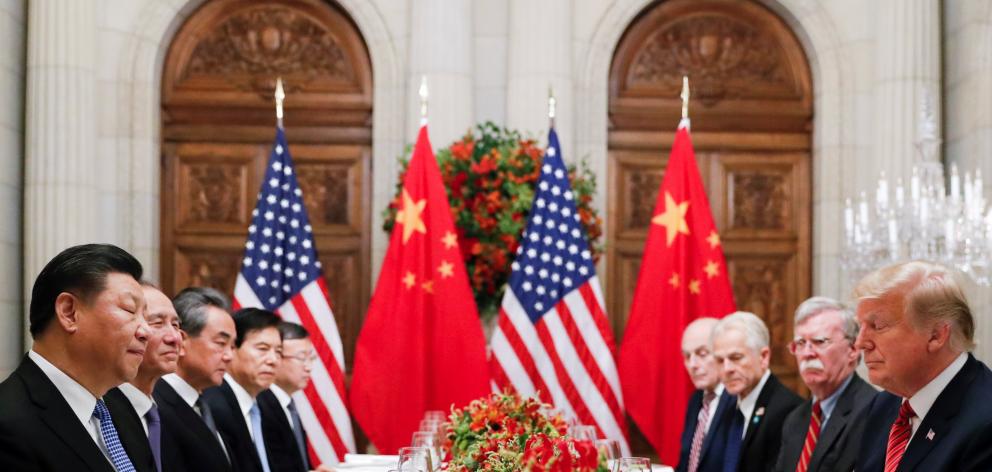
Analysts are expecting a positive week from stock markets around the world as the US and China take a breather from tit-for-tat tariff escalation, which has shaken global business outlooks for several months.
The kiwi jumped from US68.78c on Friday to US69.16 USc early yesterday, and at 5pm had eased to US69.12c.
The Australian dollar also climbed to near four-month highs after the US and China agreed to halt their trade spat with a 90-day tariff truce.
The Reserve Bank of Australia is due to meet today, but is expected to leave interest rates on hold, while tomorrow in the US, Federal Reserve chairman Jerome Powell will update the Joint Economic Committee of Congress on the economy.
Craigs Investment Partners broker Peter McIntyre said it was likely markets would remain in a positive mood this week, following the US-China trade truce.
"While the differences between the two countries are far from resolved, we can probably expect a short-term relief rally."
Two of the biggest worries for investors have been rising trade tensions and an increasingly aggressive approach from the US Federal Reserve for continued interest rate rises in 2019.
"For the time being, it appears these two concerns have been somewhat defused," he said.
China’s leader, Xi Jinping, and US President Donald Trump met for dinner at the G20 meeting in Buenos Aires over the weekend where a truce was reportedly called.
Both leaders sent positive signals and Mr Trump reportedly agreed not to go ahead with plans to increase tariffs on $US200 billion ($NZ289 billion) of Chinese imports, from the current 10% imposed to 25% in January, BusinessDesk reported.
The US would not push through increased tariffs from January, China agreed to buy a substantial amount of American products, and both parties will discuss structural changes to intellectual property protection, non-tariff barriers, cyber intrusions, services and agriculture. The stoush has threatened to slow global growth and weighed more heavily on open trading economies such as New Zealand.
"The US-China trade war has been a key driver of markets for much of this year and a de-escalation of tension sets the scene for a broadly-based rally in risk assets," Bank of New Zealand senior markets strategist Jason Wong said in a note.
"We will have to revise our New Zealand dollar forecasts higher."
Earlier forecasts had been "based on further tariffs proceeding, with the associated hit to global growth and spillover effects," he said.
Additional reporting: BusinessDesk












